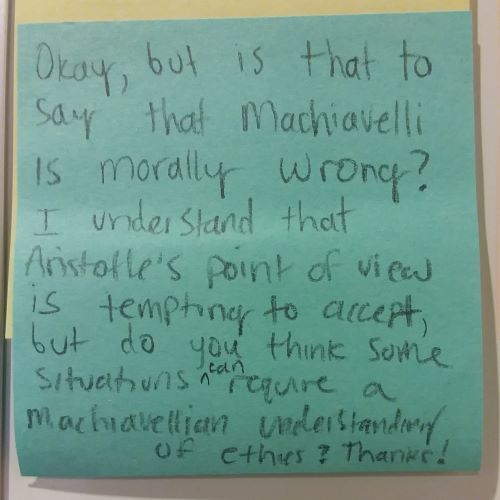![Do the ends justify the means? (...ever?) [Kant says no]](https://library.bc.edu/answerwall/wp-content/uploads/2019/11/AW11142019-04.jpeg)
Kant says no; that’s correct. Aristotle has some useful things to say on this matter, too, in the Nicomachean Ethics (O’Neill Library B430.A5): action falls in a situation-dependent range, and virtuous action generally falls somewhere in the middle–the “golden mean” (e.g., neither overly brave nor overly timid, but adapted to the needs of the situation). You could take a deeper dive into ethics by looking up virtue ethics, deontological ethics (duties and rules) and consequentialism in the Stanford Encyclopedia of Philosophy (plato.stanford.edu).

Though there are some philosophers who argue that Machiavelli is not merely a political and historical thinker, but a political philosopher, few would credit him with a consistently reasoned ethic. Read this entry in the Stanford Encyclopedia of Philosophy: bit.ly/SEP-machiavelli. He was concerned primarily with the behaviors of heads of non-democratic states, who, he argued, were not bound by the morals that constrained non-rulers. If this concern is important to you, I recommend a course in ethics in the philosophy department, such as Ethics of Peace and War or Ethics, Religion, and International Politics.

